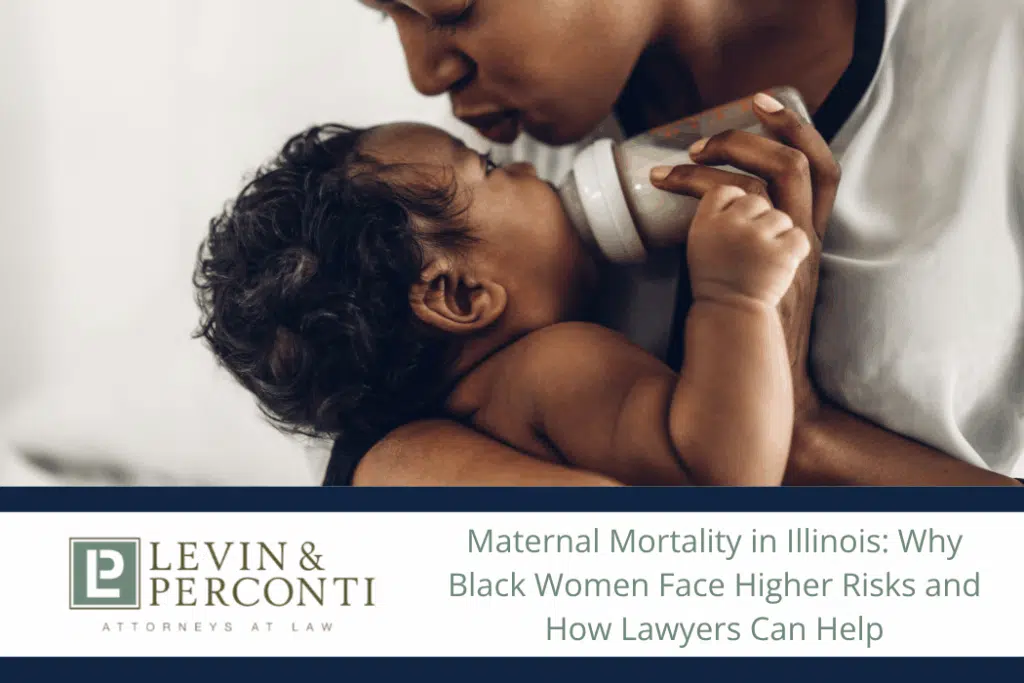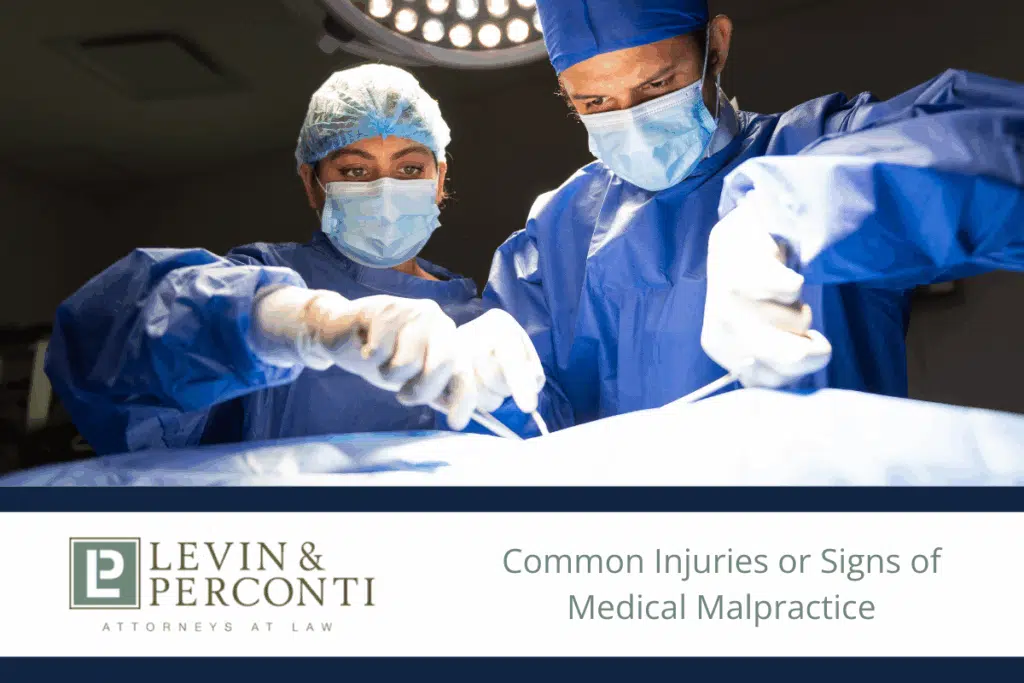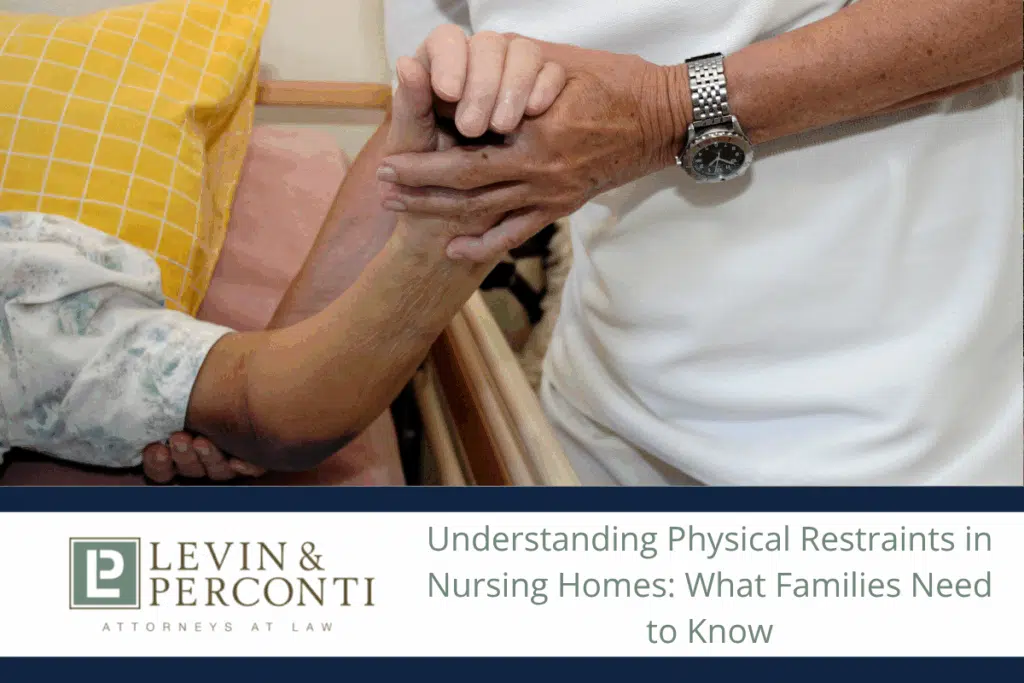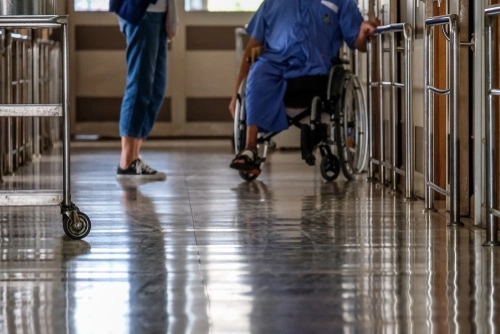Stroke Misdiagnosis Lawyer

Home | Chicago Medical Malpractice Lawyer | Stroke Misdiagnosis Lawyer
Quick Links
- What Is A Stroke Misdiagnosis?
- What Happens If a Stroke is Misdiagnosed?
- Who Is Most Likely to Be Misdiagnosed While Having a Stroke?
- What Should I Do If I Think I Have Had an Undiagnosed Stroke?
- Can You Sue The Hospital for a Stroke Misdiagnosis?
- How Can I Prove Medical Malpractice?
- How Much Is My Stroke Misdiagnosis Worth?
- How The Medical Malpractice Lawyers at Levin & Perconti Can Help
- Why Should I Choose Levin & Perconti to Handle My Stroke Misdiagnosis Case?
- Frequently Asked Questions
- Past Client Testimonials
Every second matters when a stroke occurs. A timely diagnosis with prompt treatment can result in a full recovery, but when strokes go undiagnosed, they can cause life-altering disabilities and death.
Vascular events, such as stroke and heart attack, are among the “big three” most commonly misdiagnosed conditions, accounting for 22.8 percent of all misdiagnoses. If you have suffered harm because of an untimely stroke diagnosis, our misdiagnosis attorneys may be able to recover substantial compensation for you.
What Is A Stroke Misdiagnosis?
A stroke misdiagnosis occurs when a doctor fails to recognize your symptoms as a stroke. This can result in being sent home without any diagnosis or diagnosed with a less serious condition.
A delayed diagnosis is also a form of misdiagnosis, and this is not uncommon for stroke patients. A study published in the journal Diagnosis found that 12.7 percent of ischemic stroke admissions were previously misdiagnosed strokes.
What Happens If a Stroke is Misdiagnosed?
According to Novant Health, 2 million brain cells die every minute a stroke remains untreated. Patients treated within four-and-a-half hours typically receive IV tPA, a medication that helps the body break up clots. This drug has been proven effective in reducing long-term disability after a stroke and is the standard of care.
If you had a stroke but did not receive a timely diagnosis, you may have missed out on benefitting from this important treatment. The resulting damage will vary based on the location in the brain where the stroke occurred and the type of stroke you experienced.
Types of Stroke
The two primary types of stroke are ischemic and hemorrhagic. An ischemic stroke occurs when a blood clot forms in the brain and blocks blood flow, depriving your brain of oxygen and nutrients. If untreated, the affected portion of the brain could be deprived of oxygen for an extended period, resulting in permanent damage.
An intracerebral hemorrhage occurs when a weakened blood vessel bleeds into the brain tissue. The longer the bleeding continues, the more damage is done. This can result in swelling and require surgery to relieve pressure and prevent severe brain damage or death.
Strokes with short-lived symptoms are known as transient ischemic strokes or TIAs. Some people call them ministrokes, but they should still be taken seriously. A TIA may be a precursor to a more serious stroke later. According to the Mayo Clinic, approximately a third of people with TIAs go on to have a stroke. They are medical emergencies that require immediate treatment.
Disabilities from an Untreated Stroke
Without prompt treatment, a stroke victim could develop the following disabilities, which vary based on where in the brain the stroke occurred. These disabilities may improve with months or years of rehabilitation but could be permanent:
- Paralysis or weakness on one side of the body
- Cognitive impairment
- Difficulty speaking
- Mood disorders
- Numbness
- Pain in the hands
- Difficulty swallowing
- Bladder or urinary incontinence
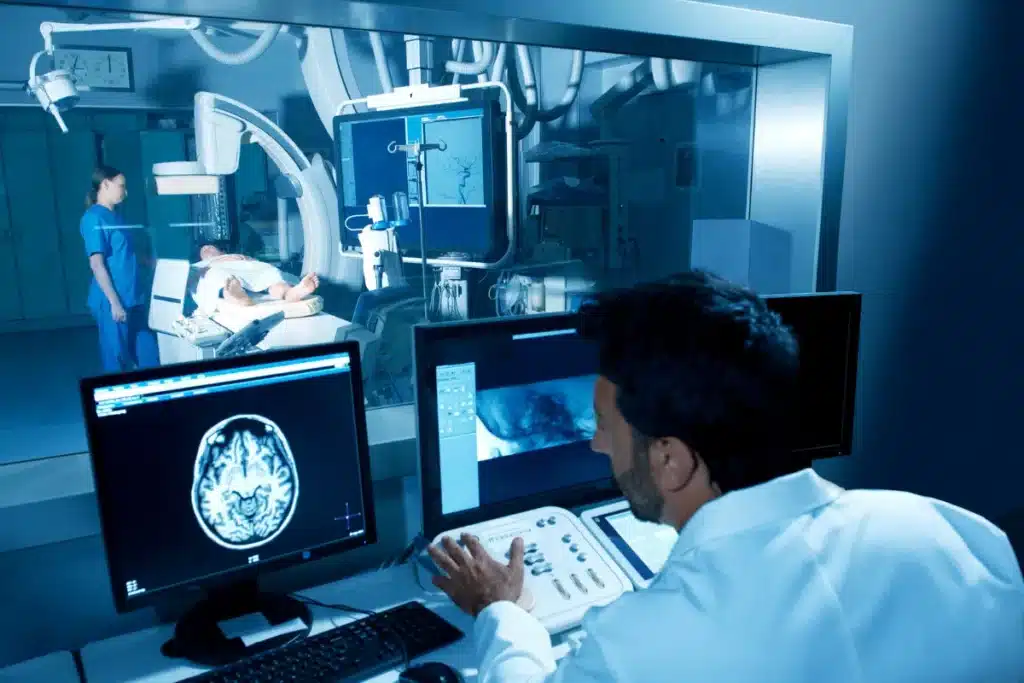
Who Is Most Likely to Be Misdiagnosed While Having a Stroke?
The following groups are most likely to experience a stroke misdiagnosis:
- Non-whites
- Young patients
- Women
- Patients with no other health conditions
- Patients whose symptoms are headaches or dizziness
According to the CDC, headaches and dizziness are stroke symptoms, but they are less common, especially when more typical symptoms are lacking. Classic stroke symptoms include the following:
- Numbness or weakness in the face or limbs, especially on one side
- Sudden confusion
- Difficulty speaking or understanding others
- Sudden trouble seeing in one or both eyes
- Trouble walking
- Lack of balance
- Loss of coordination
What Should I Do If I Think I Have Had an Undiagnosed Stroke?
If you have had a stroke, damage could still be occurring. You are also at risk of having another one. It is crucial to not stop seeking a diagnosis until you are diagnosed with a stroke, or it is eliminated as a possibility.
If you cannot secure an immediate appointment with your regular doctor, visit an emergency room to obtain a second opinion.
Can You Sue The Hospital for a Stroke Misdiagnosis?
If you have been misdiagnosed with a stroke, you may be able to sue any licensed health care provider that directly misdiagnosed it or contributed to the misdiagnosis. This includes doctors, nurses, radiologists, laboratory technicians, and hospitals. However, you must prove that the misdiagnosis resulted from medical malpractice.
How Can I Prove Medical Malpractice?
Medical malpractice occurs when a patient suffers harm from a health care provider’s failure to exercise a reasonable standard of care, defined as the actions expected of a reasonably prudent health care professional with the same qualifications given the information available.
Proving medical malpractice generally requires a thorough review of your patient records by a medical expert. You may need witness statements from nurses or other health care providers who were present. You will also need proof of your injuries and a qualified medical opinion about your future pain and disability.
At Levin & Perconti, we have a nationwide network of the most qualified experts in the medical field working for us. When you hire our experienced medical malpractice lawyers, you can count on us to use these connections to strengthen your case and maximize your compensation.
How Much Is My Stroke Misdiagnosis Worth?
Nationwide, the average payout for a stroke misdiagnosis lawsuit is $799,279. The amount you recover will vary based on the extent of your injuries, the degree of your suffering, and the financial impact of your injuries.
Economic and non-economic are the two types of damages you can recover in medical malpractice lawsuits.
Economic damages are compensation for monetary losses such as medical expenses and lost wages. If a stroke leaves you with long-term disabilities that were preventable with a timely diagnosis, you may be able to recover significant compensation for future medical expenses and projected lost wages.
Non-economic damages cover subjective losses that are difficult to measure in dollars. These are also known as pain and suffering. If you suffer chronic pain or permanent disabilities that could have been prevented with a timely stroke diagnosis, you may be able to recover significant damages for your projected lifetime pain and suffering.
How The Medical Malpractice Lawyers at Levin & Perconti Can Help
When you hire our compassionate and skilled stroke misdiagnosis attorneys, you can count on us to fight for you to receive nothing less than the compensation you deserve. We will retrieve your medical records, gather the evidence, and handle all the legalities for you, so you can focus on recovery while knowing your lawsuit is in capable hands.

Why Should I Choose Levin & Perconti to Handle My Stroke Misdiagnosis Case?
Our talented stroke misdiagnosis lawyers have over 200 years of combined experience helping medical malpractice victims recover substantial compensation. Through four decades of handling misdiagnosis lawsuits, we have developed the most effective and aggressive approach to these cases. Our knowledge of federal and state medical malpractice laws is unmatched.
Stroke misdiagnosis cases also require a detailed understanding of medical terminology, testing, and procedures. Our co-founder John J. Perconti has a medical background that has helped our team gain important insights while prosecuting complex misdiagnosis cases.
We have won $1 billion dollars for our injured clients, including record-setting verdicts and settlements, with many of our clients receiving millions. Below are just a few examples of the remarkable case results our medical malpractice attorneys consistently achieve:
- $5.35 million settlement over the failure to diagnose postpartum cardiomyopathy, resulting in the death of an 18-year-old woman who had just had her first child one month earlier
- $2.25 million settlement for the family of a five-year-old boy who survived a bone marrow transplant only to die from an infection the medical team failed to diagnose
- $1 million settlement over an HMO doctor’s failure to diagnose and treat a failing artificial heart valve, resulting in the patient’s death
- $698,000 settlement with a hospital and ambulance service for the death of an 81-year-old patient who suffered a stroke at the hospital but did not receive a timely transfer to a stroke center
If you have suffered harm because a doctor failed to timely diagnose a stroke, you may be entitled to significant compensation. Contact us today at (312) 332-2872 for a free case evaluation.
Frequently Asked Questions
Below are answers to the most common questions we receive about stroke misdiagnosis lawsuits.
Is There a Time Limit For Filing a Stroke Misdiagnosis Lawsuit?
The Illinois medical malpractice statute of limitations is two years from the injury date or the date you discovered the injury. There are exceptions, so contacting us as soon as possible after your injury is important to ensure your case is filed on time.
Can I File a Lawsuit If My Family Member Died Because of a Stroke Misdiagnosis?
Your family may be eligible to file a wrongful death lawsuit. Our caring wrongful death lawyers can help your family pursue damages for your loved one’s pain and suffering, your family’s grief, the lost income of your loved one, burial expenses, and your loved one’s medical expenses.
Can I Still File a Stroke Misdiagnosis Lawsuit If I Signed a Consent Form or Waiver Before Receiving Medical Treatment?
Consenting to surgery and even assuming the known risks of surgery are not the equivalent of waiving your right to sue in the event of medical malpractice. If the form contains language specifically stating that you release the doctor and hospital from liability in the event of medical negligence, it could affect your right to sue.
However, these contracts are not always enforceable. Our medical malpractice lawyers can determine how such an agreement affects your rights after reviewing the waiver and the circumstances under which you signed.

Past Client Testimonials
Don’t take our word for it. Hear from some of the medical malpractice victims we’ve helped:
Not only were they so professional but also so caring and thoughtful. It was very difficult going over the facts in our mother's case but they were so compassionate and understanding and allowed us to be with them every step of the way. We were able to sit in on the depositions and we were really able to see how hard they worked on our behalf.

During that time, my family and I suffered the loss of my mother. Mr. Levin and Mr. Perconti were more than just our lawyers. Words can’t really express our gratitude.

They were most patient and responded timely to many questions throughout the entire process. All demonstrated professionalism and extensive knowledge of case and state laws. Their in-depth investigative work uncovered details which were unknown to us and yet sadly confirmed our suspicions. We would recommend the Levin and Perconti Law firm and especially this team.

During that time, my family and I suffered the loss of my mother. Mr. Levin and Mr. Peconti were more than just our lawyers. Words can’t really express our gratitude. My family and I will always be grateful for the compassion that they showed us. I want to thank you for what you did for my family, and for always being there for us.

Margaret’s representation, guidance, and professionalism gave us the sense that we could put our trust in Levin & Perconti and the final outcome proved that to be true.

Legally Reviewed by

Bonamarte, IV
Read Bio
Since 2005, Michael Bonamarte IV has been a passionate advocate for victims of negligent conduct, corporate malfeasance, and medical malpractice. He has won numerous awards and recognitions, including Best Lawyers in America and Super Lawyers’ Rising Star. He has presented for the American Association for Justice, the AAJ Nursing Home Litigation Group, the John Marshall Law School, and numerous other legal associations. He regularly lectures at Chicago-area aging organizations about nursing home abuse. His writings have been published by the American Bar Association, the Chicago Daily Bulletin, and numerous other prestigious publications.
Related Pages
Notable Results
for failure to properly read pap smears, resulting in the misdiagnosis of cervical cancer and eventual death of a 35-year-old mother of three children.
for failing to biopsy a known breast tumor, resulting in the delay of diagnosis of breast cancer, causing death.
for failing to perform an annual pelvic exam, which resulted in the untimely diagnosis of ovarian cancer.
Related Blogs


